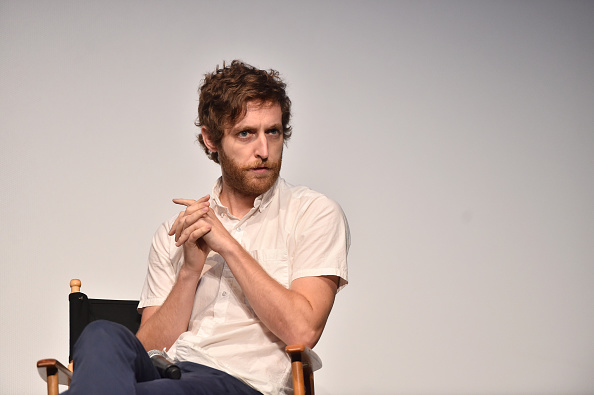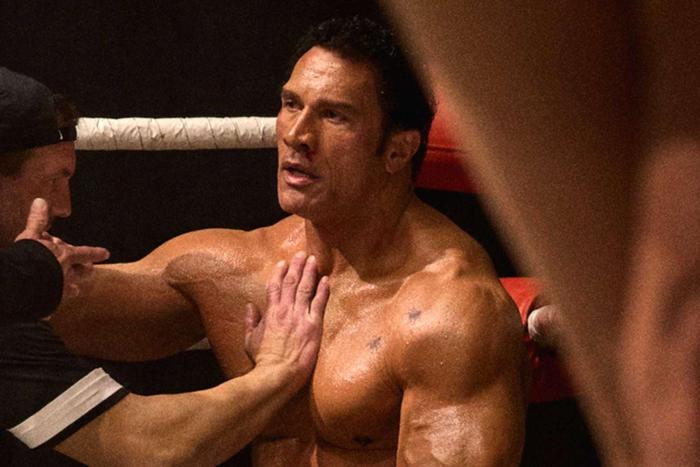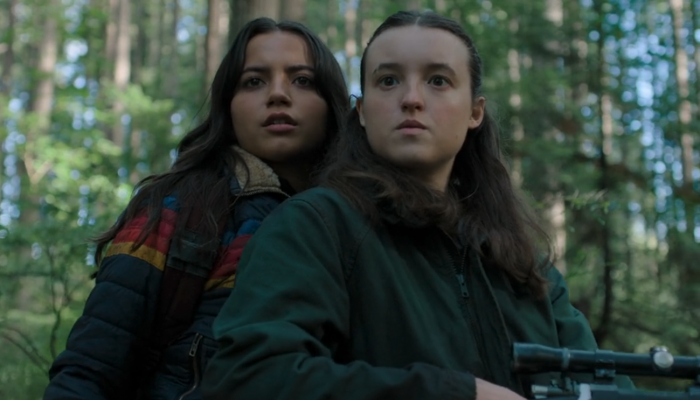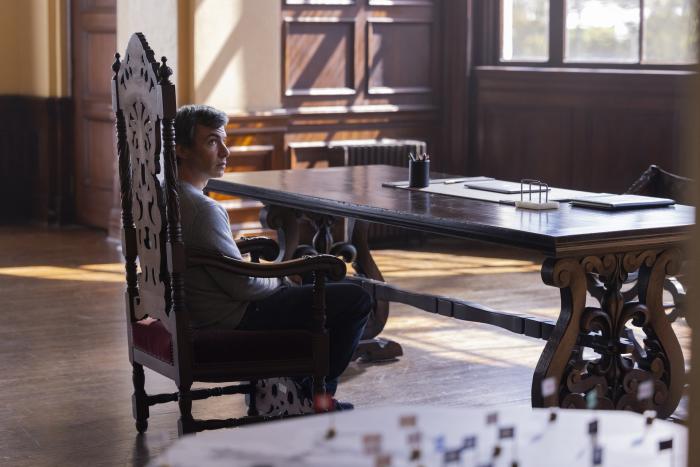
Alex Garland’s 'Warfare' Wants the Horror of War Without the Politics That Cause It
By Jason Adams | Film | April 11, 2025

Hot off the fictional-ish (although less so by the day) American unrest of last year’s journalists-in-peril mega-downer Civil War, writer-director Alex Garland is suiting up for battle again with the terrifying tableau of Warfare, a slice of visceral verité that drops us into the middle of a conflict so oppressively claustrophobic you’ll find yourself longing for the open road of nightmare stuff that Kirsten Dunst & Co. sailed down in that previous film.
Starring a merry band of up-and-coming actors (including Charles Melton, Will Poulter, Noah Centineo, Michael Gandolfini, Kit Connor, Joseph Quinn, the list goes on and on) who find themselves un-merrier by the minute as all the air’s sucked out of their situation, Warfare is such an immersive experience (for good and for ill) that you’ll walk out at film’s end rattled and stunned, wiping phantom dirt from your face similar to the soldier who at one point starts screaming for them to not leave behind his arm which happens to still be very much attached to him.
Co-directed by former Navy SEAL Ray Mendoza (who was the military supervisor on Civil War) and based on the memories of Mendoza and his fellow soldiers of an actual conflict they experienced, Warfare is set in the town of Ramadi, Iraq in November 2006, where this group of SEALs have found themselves trapped in the belly of the war beast with so-called unfriendlies closing in in every side. Their mission directive quickly becomes simple enough, at least on its surface—get the hell out of there in one piece.
Real place, real time, real battle—all of this immediately differentiates Warfare from the discombobulating fancies of Civil War’s purposefully murky political situation. (Texas and California teaming up? Wha-huh?) This situational grounding doesn’t necessarily mean Garland’s aiming straight for simple realism here, though—I think the opening title card pointing out this film’s based on the soldier’s collective “memories” is our first hint there might be some thematic abstraction ahead on hand.
And sure enough—after an opening scene where the soldiers pump themselves up for battle watching a sexy workout video set to Eric Pryde’s 2004 dance-hall banger “Call on Me” (that title matching the communal tattoo the entire cast’s been showing off during Warfare’s press run)—the film opens upon a residential neighborhood of samey-looking two-story cement houses where things immediately feel kinda off. Not due to the environs, mind you—just the vibe the film’s emitting. Garland places his camera far back and at the center of the street, making the soldier’s movements across the screen look to-size and rendering everything very stage-like—it feels as if “Enter Stage Left” could’ve been the screenplay’s opening direction. It wouldn’t have felt off in the slightest if Garland had shown velvet curtains opening up at the start to show off this view.
We eventually do get closer into this crew—much, much closer, with Garland’s camera practically pushing itself into their open wounds at points. But an air of uncanniness has already settled over everything, like the dust from the cracking and shattering cement that the camera and the characters keep taking notice of. There is never any reason given for why the SEALs are here doing what they’re doing—we watch them sneak in at night and commandeer an Iraqi family’s house to spy on the neighbor’s activities, but it’s the Americans’ intrusion that seems to be the only thing activating any response. From where the film stands, it just seems as if the Americans blunder in, they turn everything into chaos for no reason we can surmise, and then they blunder back out again, leaving the neighborhood in blood and ruins behind them. Sounds about right.
Anyway it’s a straightforward tactic that I do prefer to Civil War’s furious kitchen-sink waving of hands to distract us from its political particulars—instead of throwing a lot of nonsense at us that we get hung up on, Warfare shaves itself down to a torrent of in-the-moment abstractions. Immediate moment to moment, long silence to awful explosions, all at finger’s length. It focuses in so close and anonymously—could the film’s title be any less particular?—that any rationale for the outlandish horror and brutality unleashed within its blink-and-you’ll-miss-it ninety minutes seems obliterated by the end. It is what it is. Blood and terror and the utter searing meaninglessness of killing and war.
To that end, all of the actors do exactly what they’re called on to do, which is to matter-of-factly feel as if they belong there and then get out of the way of seeming like more than types. Co-director Mendoza is played by Reservation Dogs star D’Pharaoh Woon-A-Tai as the eyes, all watchfulness, our main witness. Poulter is the friendly dude in charge, and baby-faced Connor (Heartstoppers) is the new boy — and so it goes down the cast list. Everybody from Centineo to Gandolfini to Melton is there to react, to shout, to shoot, and to stand in stunned silence when called upon. To be just distinct enough faces framed within identical fatigues that we can keep track of movement within more and more confined spaces.
That said two actors are allowed to really, you know, act—Cosmo Jarvis (Shōgun) and Joseph Quinn (Stranger Things and the Johnny Storm to be in the upcoming Fantastic Four movie) are given by far the most acting to do (for reasons it would be spoilery to go into) and both deliver outstanding instinctive work that really tears itself under your skin. Warfare works as a communal effort by its entire team of performers—not to mention its magnificent feats of sound design, cinematography, and editing—but if there’s anybody who holds on as you stumble out of the movie, your ears and extremities ringing like a bell, it’s Jarvis and Quinn’s faces I see staying with you.
While it’s tempting to say we don’t need yet another movie whose main directive is to plunge us into the visceral despair of “War is Hell” again, it’s also hard to ignore, looking around at oh you know Humanity, that that isn’t a lesson we shouldn’t keep drilling. It does have purpose. That said, as with Civil War, it’s also difficult not to feel as if Garland’s continued insistence on abstracting the Politics out of War does some disservice to reality. Somebody sent these Americans into this (mostly voiceless and indistinguishable) Iraqi family’s house, after all. Those reasons do have meaning, horrible though they may be. And while chalking it all up to the same old off-stage meaninglessness might have something of an essential truth to it (it is meaningless to the majority of us pressed beneath power’s thumb) we remain aware throughout Warfare that the curtains will fall on this particular stage. It works so hard (and successfully) at rattling our brains loose inside its cage that the only real lingering question left in its wake is, Where’s the Tylenol?”



